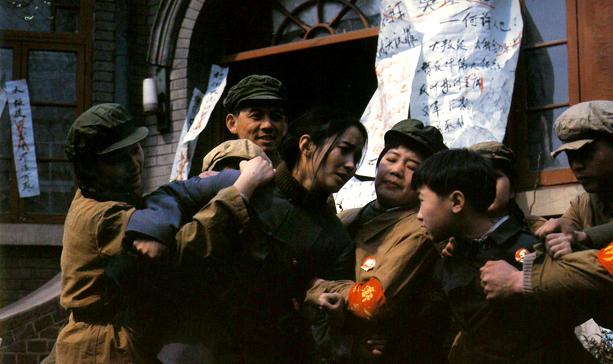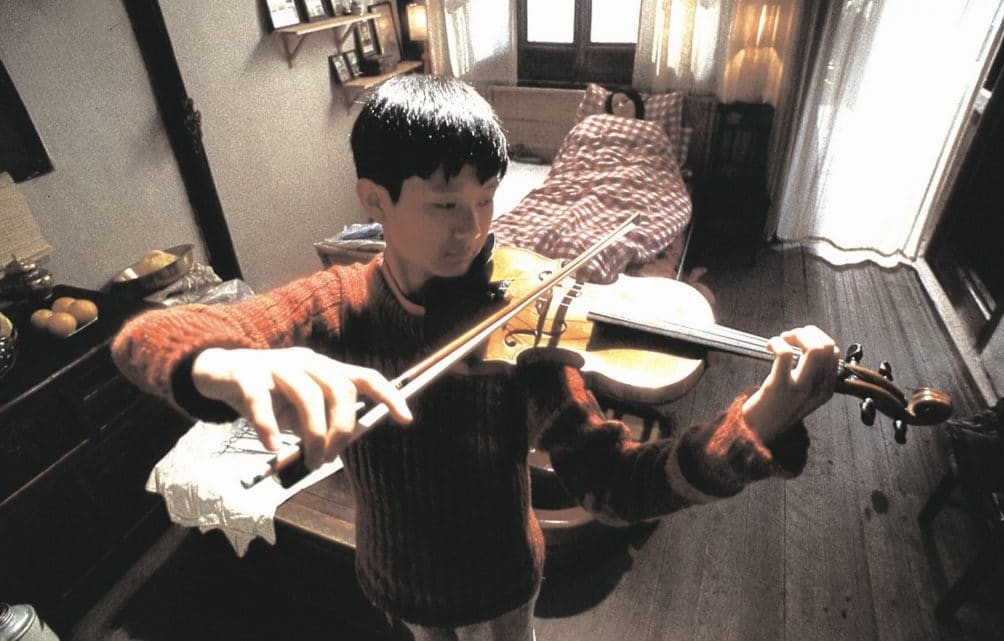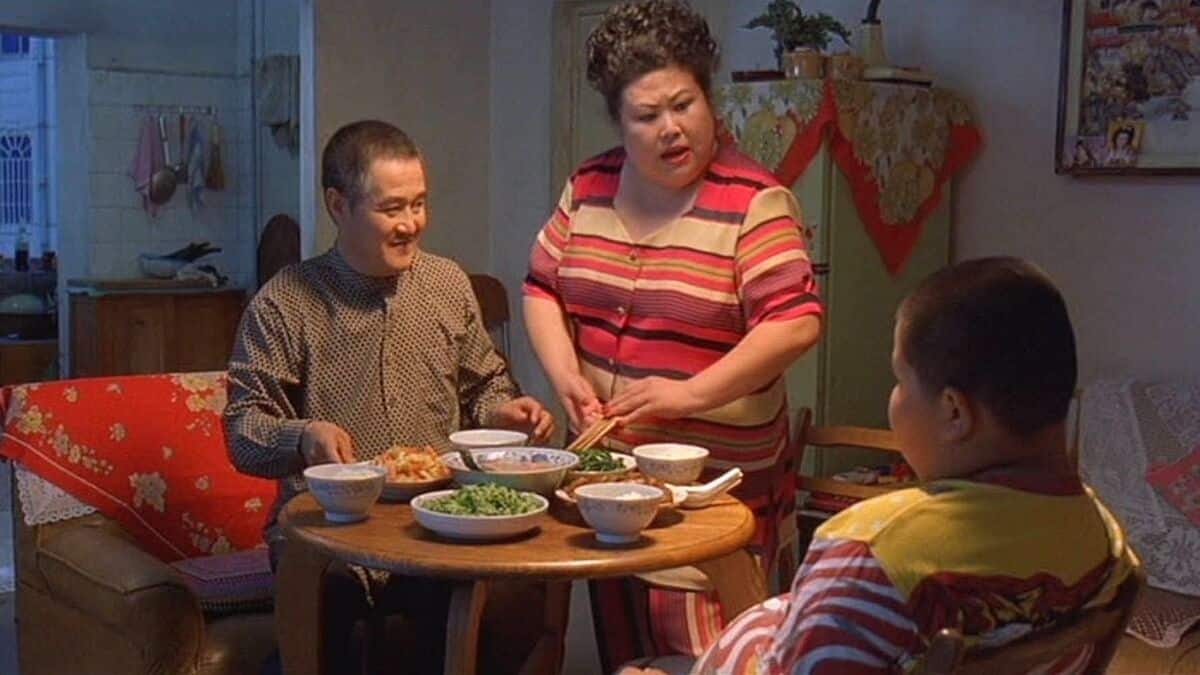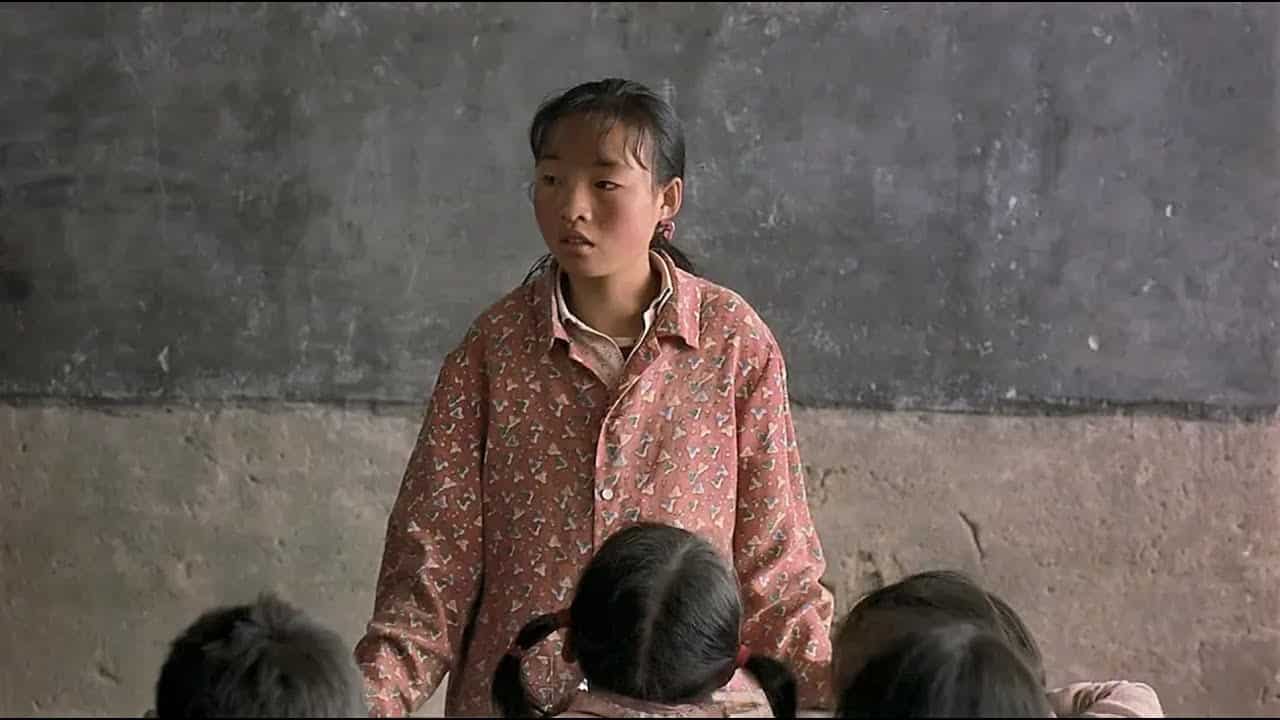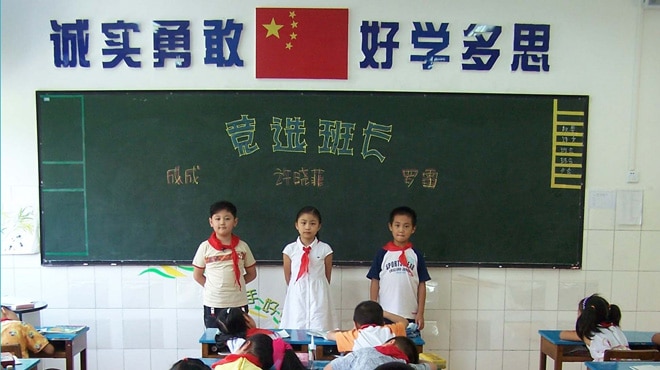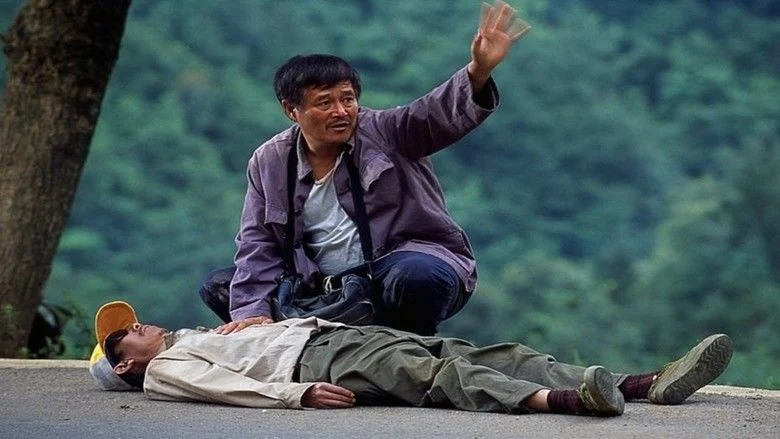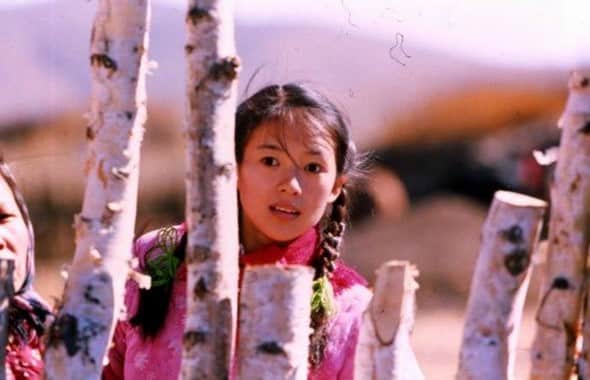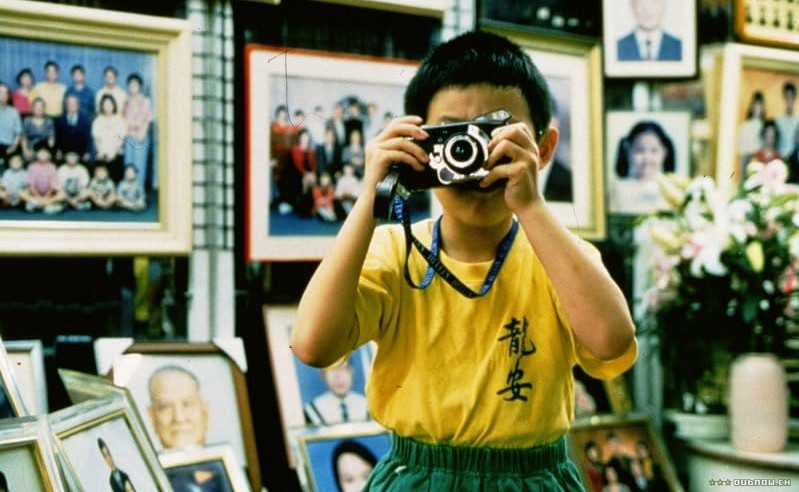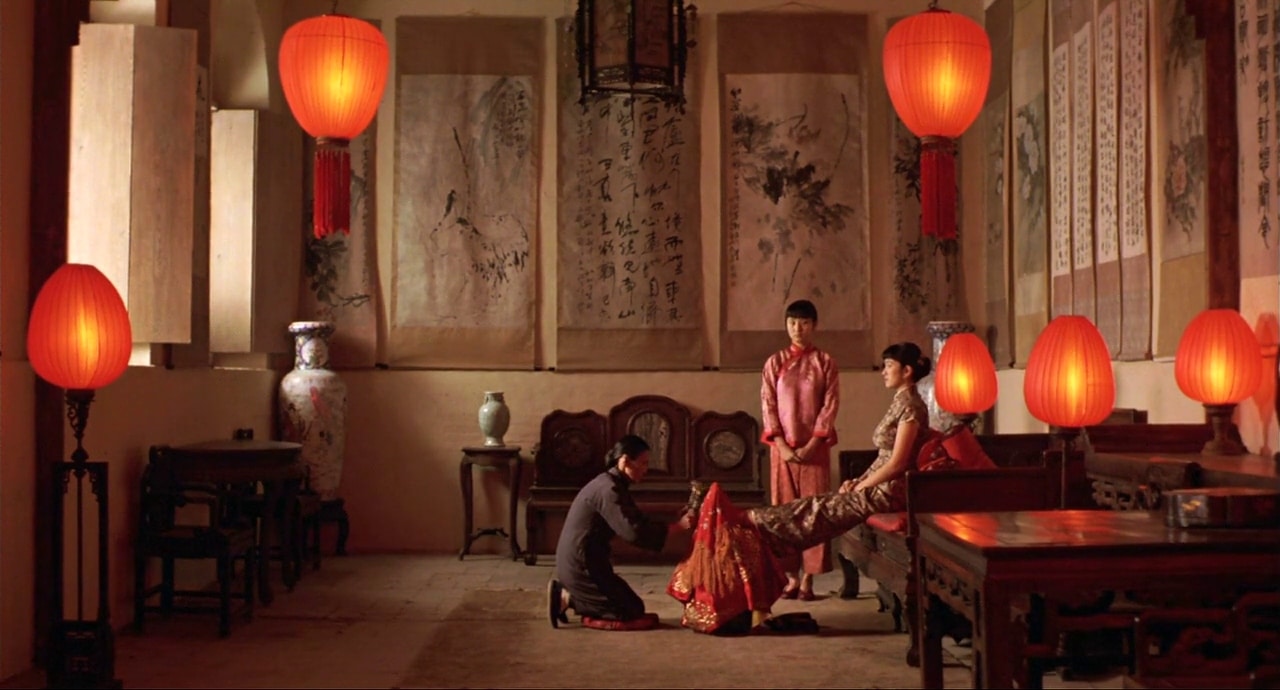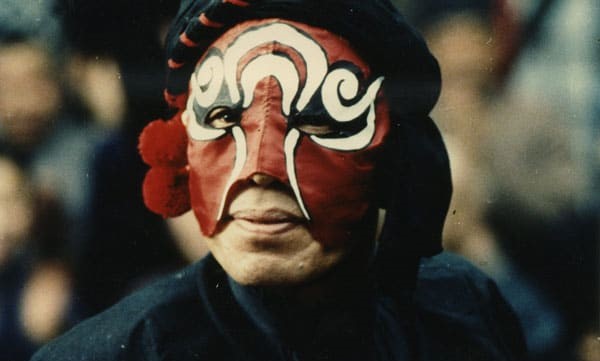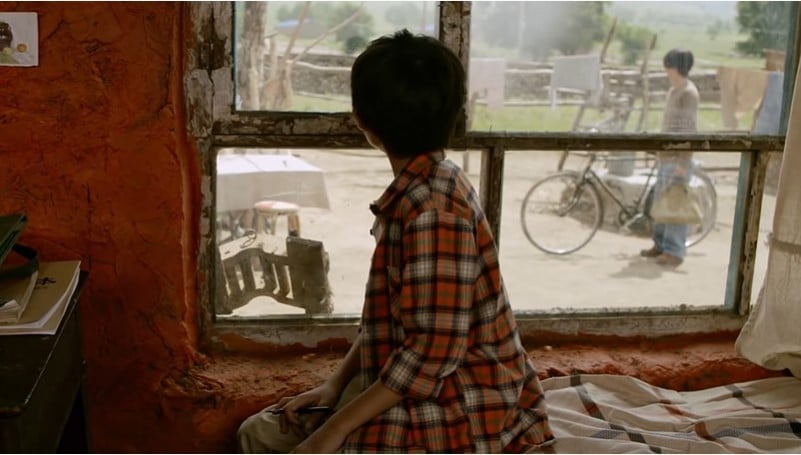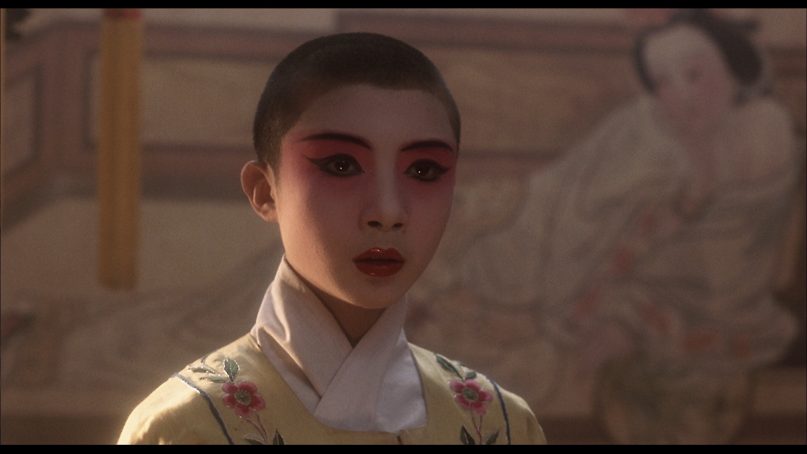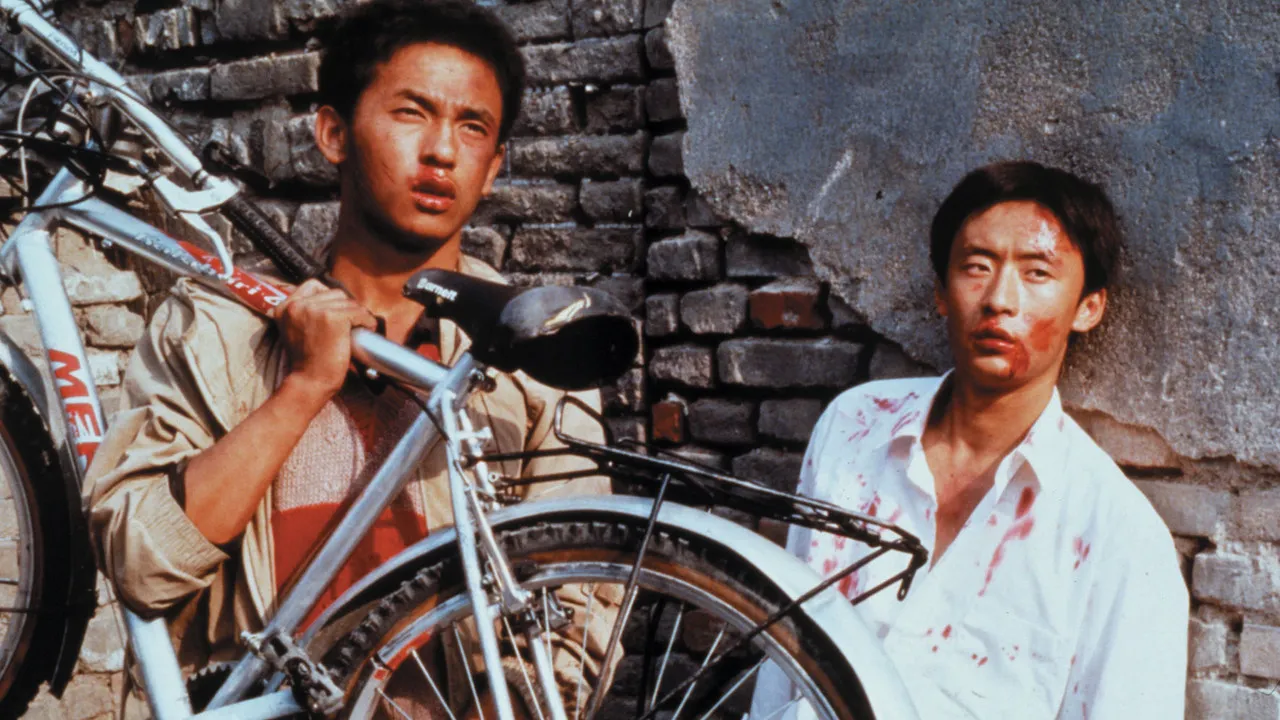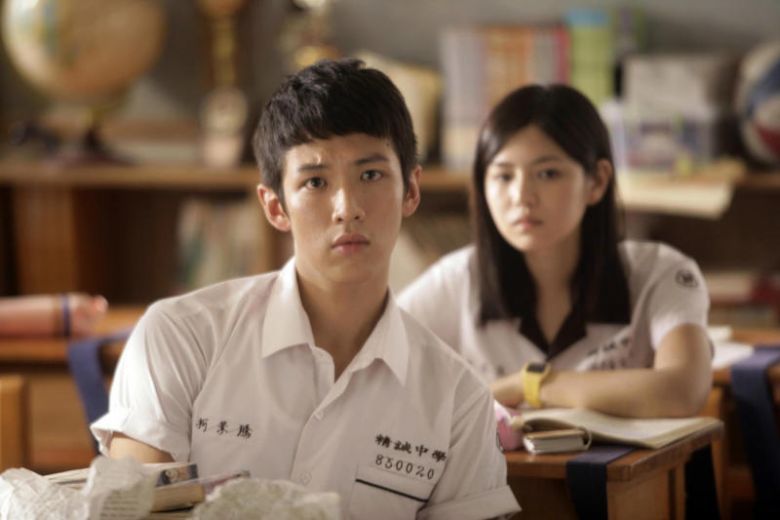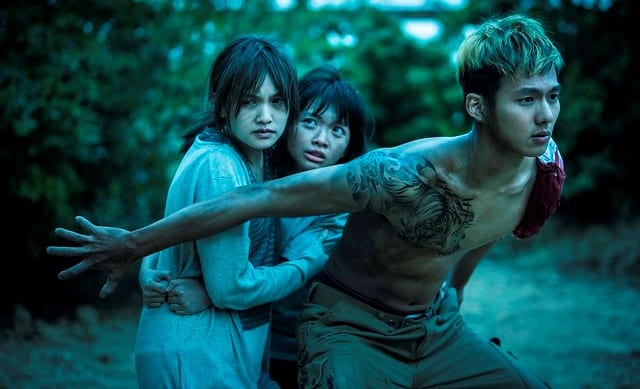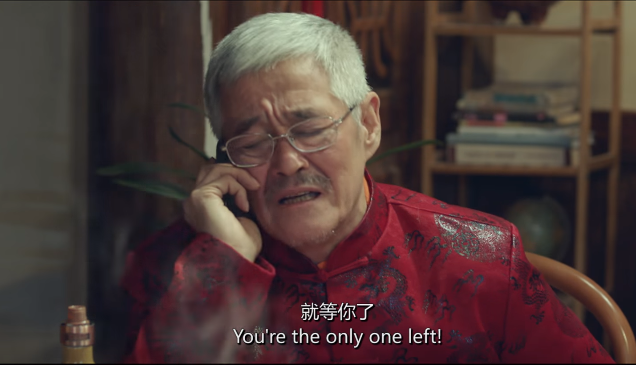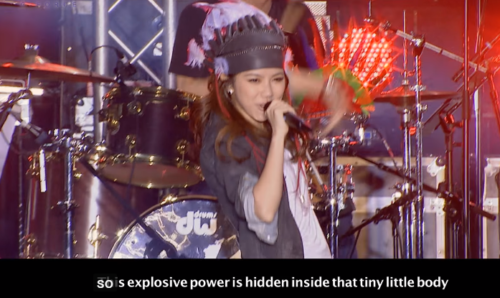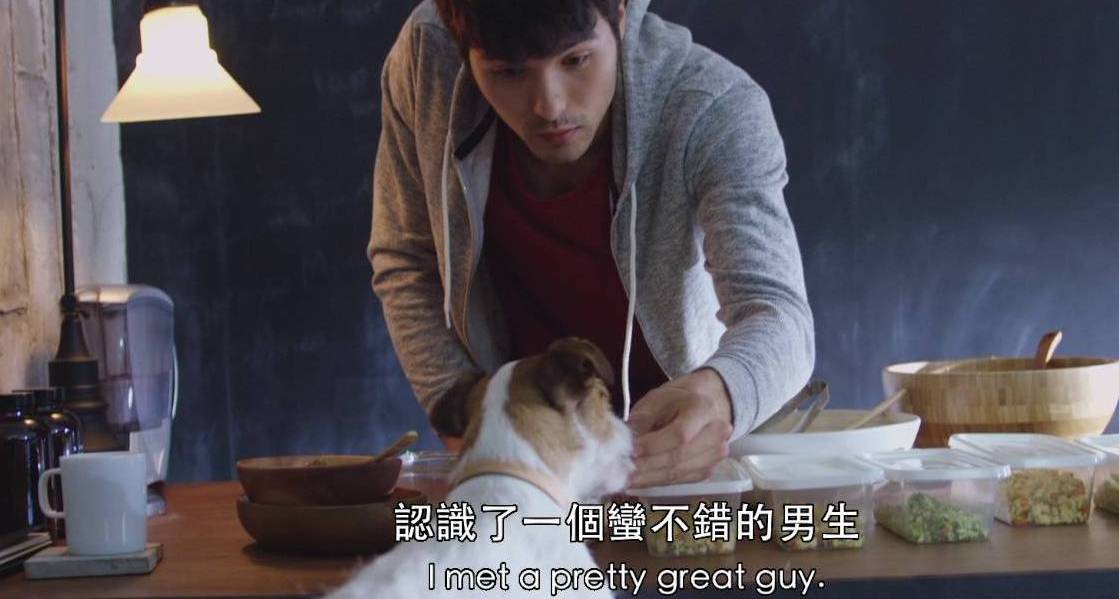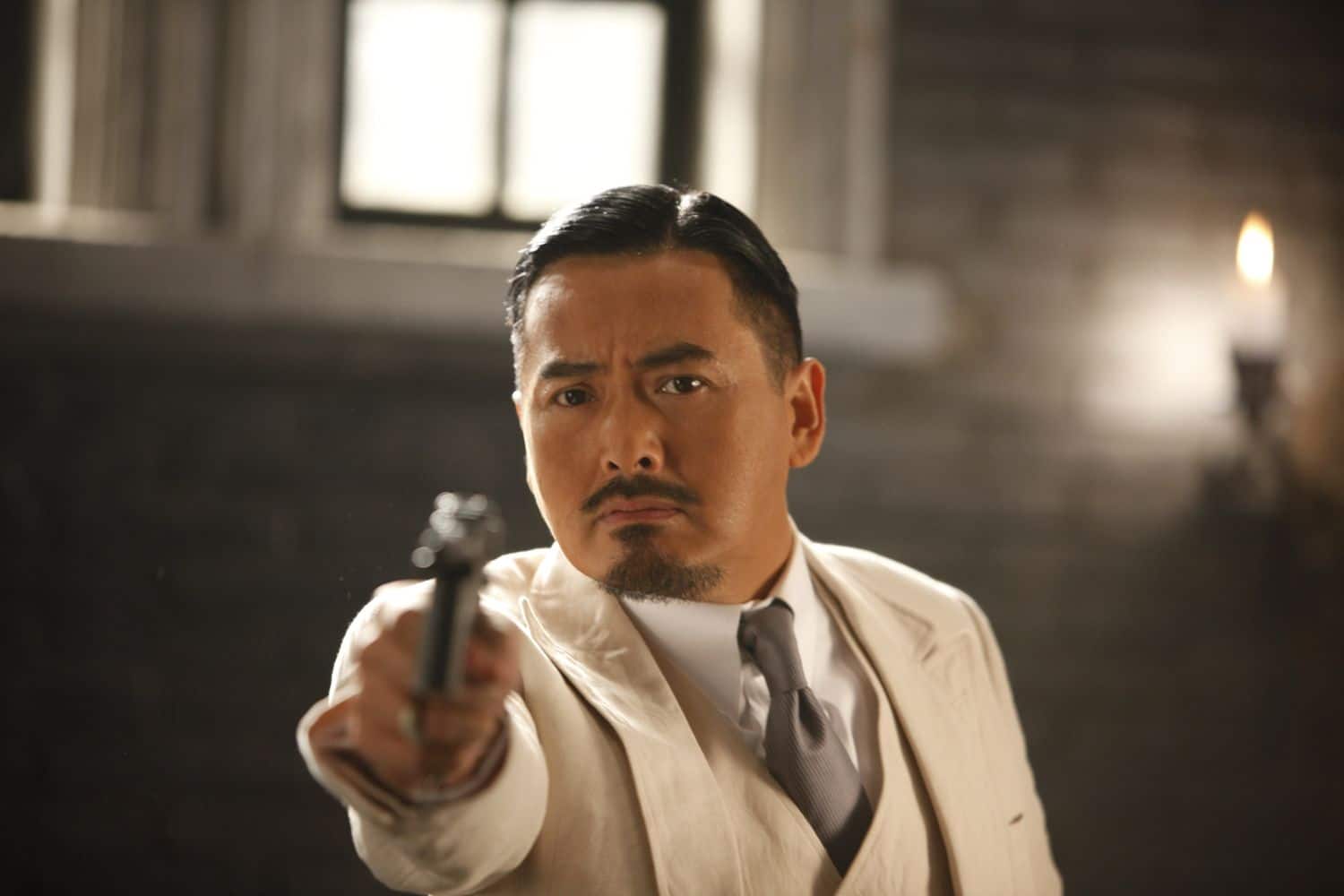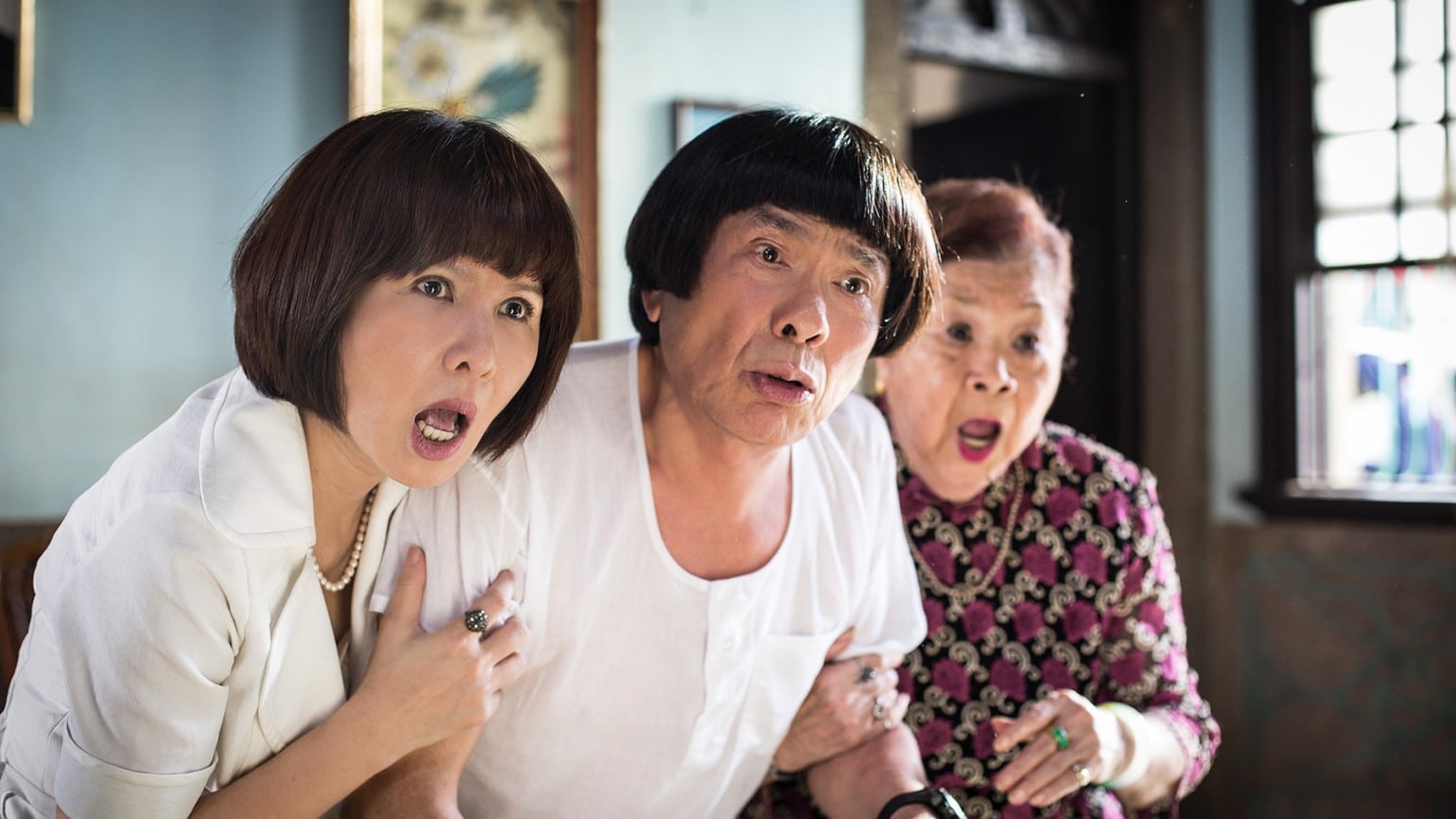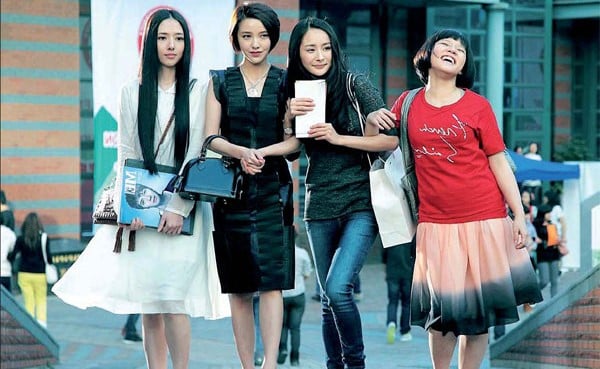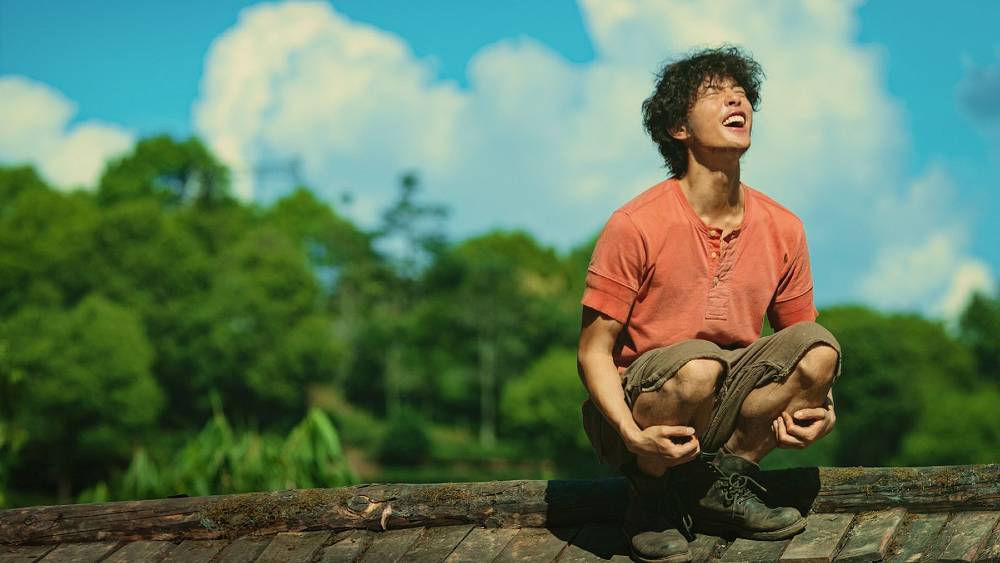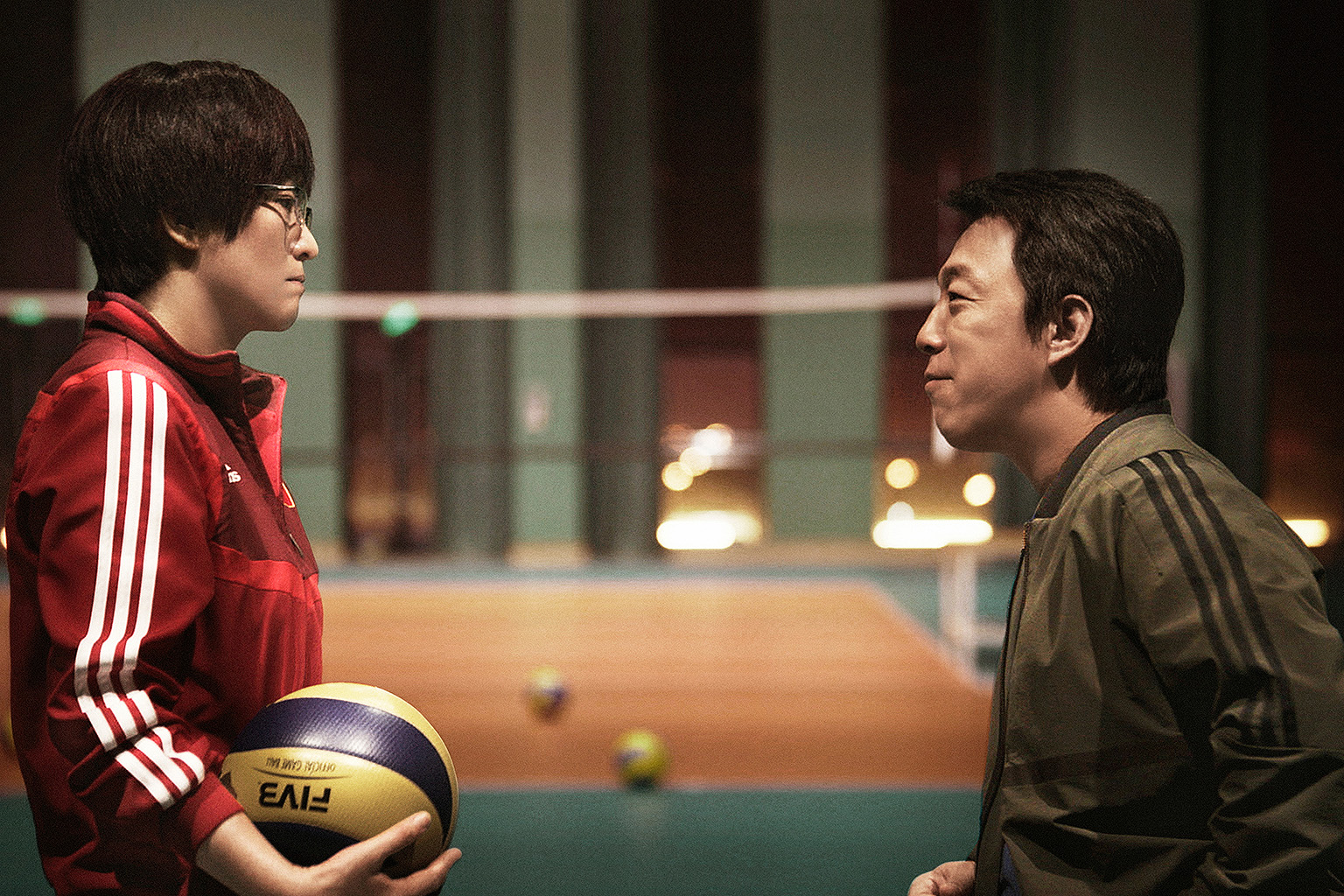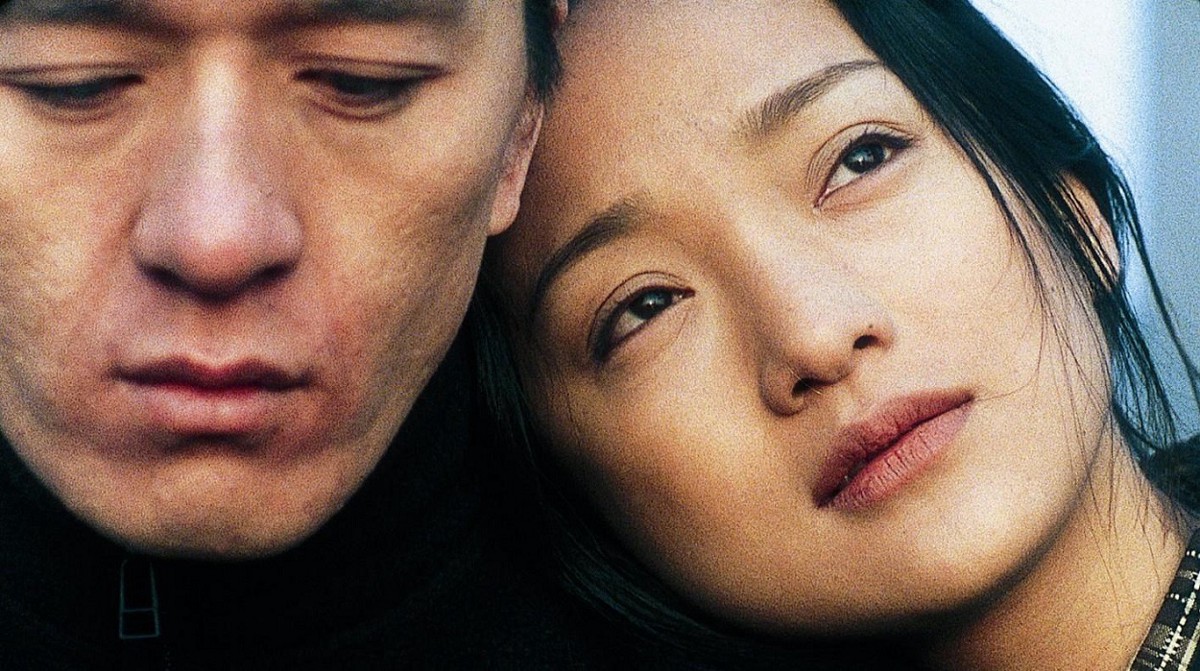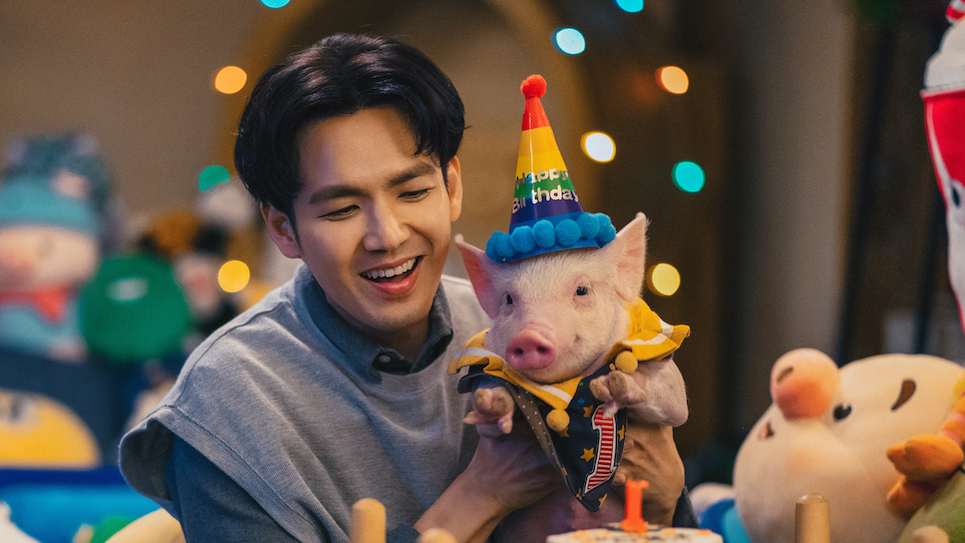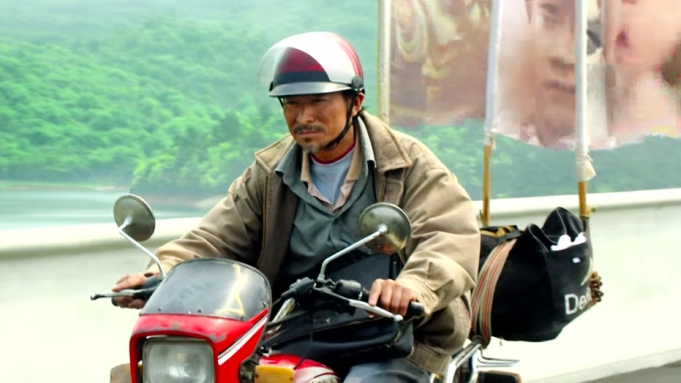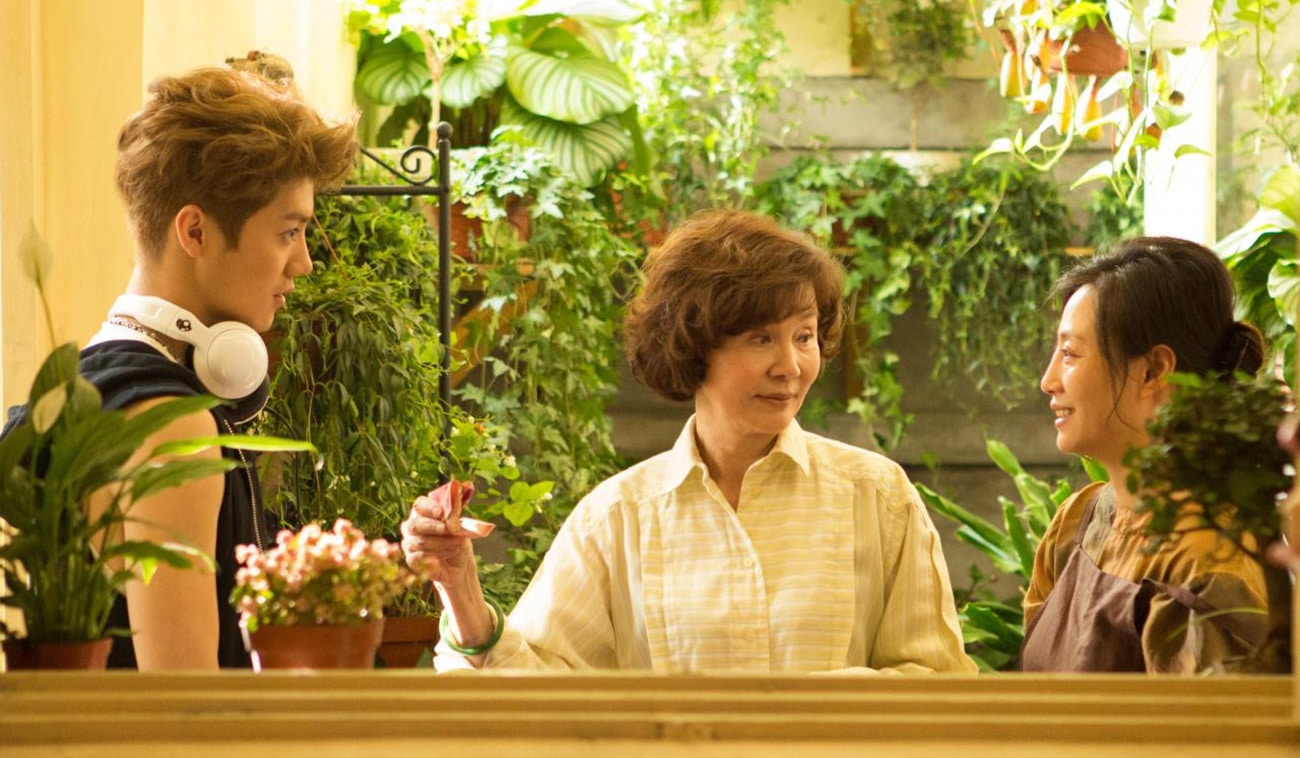Learning Chinese can be as entertaining as it is educational.
Keep scrolling to check out my favorite films for Chinese language learners!
Best Strategies for Learning Chinese from Movies
Don’t get the popcorn popping just yet. First, we’ve got to go over some strategies for how to approach Chinese language films.
Watch actively
Sure, some days you’ll want to just sit back and relax, not worrying if you’ve understood every last detail. However, you’ll get much greater educational value out of an active watching experience.
Pause and rewind when you miss half of a complicated dialogue. Go back and watch these tricky scenes until you understand every word.
As you watch the same scene repeatedly, keep an eye on the subtitles below and mouth lines along with the actors if possible.
Keep a notebook nearby and jot down new vocabulary or puzzling sentence structures so you can revisit what you’ve learned later.
Actively watching movies will help you pay closer attention and become thoroughly engrossed in the language.
Use Chinese subtitles to your advantage
Too many language learners slip into the habit of watching Chinese movies with English subtitles and using their more comfortable language as a crutch.
Alternatively, just as many Chinese students try to fly solo and play movies without any subtitles at all, inevitably resulting in undue frustration.
The 41 Best Movies for Learning Chinese
1. 活着 (huó zhe) — “To Live”
Where to watch: Prime Video | YouTube
“To Live” should be near the top of anyone’s list of best movies for learning Chinese. It’s what many Chinese cinema buffs would describe as the quintessential film about the Cultural Revolution.
This film serves to illustrate the changes taking place for families during this tumultuous time. From humor to heartache, birth to death and everything in between, “To Live” shows it all.
It’s a large enough production to tackle issues from a big-picture perspective but has intimate character portrayals that help us identify with the situation on an individual level. This is a culturally-rich film with unique benefits for Chinese learners.
The dialogue used is usually simple enough for an intermediate-level Chinese learner to follow, with or without subtitles. Of course, learning Chinese characters and watching the film with Chinese subtitles can be much more enriching.
2. 蓝风筝 (lán fēng zhēng) — “The Blue Kite”
“The Blue Kite” might easily rival “To Live” as a defining film for the turbulence experienced by families during the Cultural Revolution.
What sets “The Blue Kite” apart is that the story is told from the perspective of a little boy. It’s hard not to become attached to Tietou (the main character) as he passes the years of his young childhood with three different father figures.
Many scenes involve him and family members having simple conversations, meaning that everything is spoken by or to a child. There are also plenty of simple conversations between the adults that are easy to follow for new Chinese learners.
The film is great for beginners and, though it’s simple, it’s evocative and compelling. It has a great selection of vocabulary that you can use to discuss family, history and culture.
3. 和你在一起 (hé nǐ zài yì qǐ) — “Together”
Where to watch: Prime Video
“Together” tells the story of a man who wants his son to succeed as a violin player. This film displays a common Chinese mentality that success comes from extreme focus and even greater sacrifice.
The man and his son move to Beijing so the boy can enter a music competition. The hardworking father very often puts his son’s competition ahead of their own relationship, the emotional core of the movie.
Complementing this tension, the relationship between the child and his violin teacher is quite humorous and entertaining. Overall, “Together” gives us a glimpse of the challenges faced by many Chinese moving to big cities.
Many of the characters speak with heavy accents, but this is good for learners to be exposed to—you’ll need to get used to many different accents when communicating with people from different areas in China.
4. 幸福时光 (xìng fú shí guāng) — “Happy Times”
Where to watch: Apple TV
“Happy Times” is a bit of an off-beat comedy with a very funny story. Like many Chinese films, though, don’t expect it to be goofy and silly just for the sake of it; it’s also quite mature.
The characters consist of a motley crew of retired friends who set up a fake hotel in an abandoned warehouse and, with good-hearted intentions, hire a blind girl to work in the “hotel.”
There are lots of hilarious interactions between the friends as their scheme develops. It might be hard to focus on the language being spoken between all the laughs, but it will be worth the effort.
You’ll find this one perfect for learning light-hearted conversation and everyday expressions of romance and friendship.
5. 归途列车 (guī tú liè chē) — “Last Train Home”
Where to watch: iTunes | Prime Video
“Last Train Home” gives a great look at a very interesting, important aspect of modern life in China: trying to get home during the holidays.
This international award-winning film is a documentary about the hundreds of millions traveling at once during the national holidays in China. It centers around one family who are separated physically and emotionally by the need to move to large cities to find work.
While the main characters usually speak with a heavy dialectal accent, the film still teaches at least one main thing about China: don’t attempt to travel by train during the Chinese New Year. This film is full of great vocabulary for describing transportation, basic business terms and family dynamics.
6. 一个都不能少 (yí gè dōu bù néng shǎo) — “Not One Less”
Where to watch: Prime Video | Apple TV
“Not One Less” is a simple story about a schoolteacher in a village in rural China. This film highlights another very interesting aspect of life in China–the discrepancies in education of children in rural and urban China.
In the school in this story, even one piece of chalk seems a luxury. The schoolteacher herself is only a child. One of the students runs away to the city and the teacher is forced to go look for him to keep her job.
The film uses wonderfully simple Chinese in conversation, and you should be able to view it with Chinese subtitles. An advantage is that many of the actors are non-professionals. They’re more or less acting in their own vernacular. This makes the film seem very real, making it an even more touching story.
7. 请投我一票 (qǐng tóu wǒ yí piào) — “Please Vote for Me”
Where to watch: YouTube
“Please Vote For Me” is a documentary about a democratic election (supposedly the first of such in China) for class monitor in an elementary school in Wuhan, China.
The film follows the three candidates through many classroom scenes, debates and coaching sessions with their parents. It’s a very modern look at middle-class life in China. The story is great for Chinese learners.
Some of the scenes have a lot of background noise with the students all yelling. However, there are also many scenes of conversations between the kids and with their parents, meaning that the language used is relatively simple. Since the content and the vocabulary used in the conversations isn’t too complex, the story is easy to follow.
8. 北京出租车 (běi jīng chū zū chē) — “Beijing Taxi”
Where to watch: Prime Video | Apple TV
“Beijing Taxi” is a documentary that follows three taxi drivers through Beijing in 2008, in the time leading up to the Beijing Olympics.
The city of Beijing changed a lot during that time. For example, many old neighborhoods were torn down to make room for the Olympic facilities. This is reflected in the comments of the three featured individuals.
“Beijing Taxi” gives a great look at the everyday lives of hardworking people in the midst of changes they have little control over.
Most Chinese learners will be familiar with the Beijing accent, especially if they’ve done any audio lessons. Such lessons typically feature this northern Chinese accent.
9. “Up the Yangtze”
Where to watch: Prime Video
“Up the Yangtze” documents the enormous effects that the Three Gorges Dam project has on many people.
It shows one family whose home will be covered by the flooding caused by the dam. Ironically, the daughter of the family finds work on a cruise boat on the river. The other main character is an ambitious, popular young worker on the boat.
The film really drives home the changes that modern China is going through. The young girl from the countryside working hard, trying to find her place in a new environment. The proud boy is ambitious for new opportunities but is lacking the values and traditions that are so strong for others.
Individual and cultural changes like these are likely the subjects of many conversations that Chinese learners will have with native speakers. In that way, “Up the Yangtze” makes for a great learning experience.
10. 落叶归根 (luò yè guī gēn) — “Getting Home”
Where to watch: Prime Video
“Getting Home” is a comedy about a man who agrees to take his friend’s body home for a proper burial, having previously promised his friend a favor.
With no money for transportation, the man has to find a way to travel home. Along his journey (with his friend’s remains), he meets a wide variety of characters with whom he has really funny but touching interactions.
He gets himself into and out of a lot of comical situations. The story is fun and the dialogue is easy to follow. The main character is played by Zhao Benshan, from “Happy Times,” mentioned above. The film should be available with both English and Chinese subtitles, which is great for Chinese learners.
11. 我的父亲母亲 (wǒ de fù qīn mǔ qīn) — “The Road Home”
Where to watch: Netflix | Prime Video
“The Road Home” is a subtle, sweet love story set about fifty years ago in rural China.
A small village gets a new schoolteacher. One of the village girls falls in love with him and they’re eventually married. Many years later, the woman is determined that her husband’s burial procession will be on foot. It’s a long enough journey that most would take by car, but she’s quite stubborn.
The majority of the story takes place when they’re young. The advantage for the learner is that there aren’t too many characters, the story is very easy to follow and there’s some narration by the old couple’s son.
The film has great visuals and great music, which really keep you along for the ride. It also gives the Chinese language learner a chance to see life in rural China before the Cultural Revolution modernization and without any of those themes.
12. 一一 (yī yī) — “Yi Yi: A One and a Two”
Where to watch: Netflix | iTunes
“Yi Yi” is a drama about a family in Taiwan who face complex challenges in life.
The film shows the challenges of each individual separately, but the children’s stories turn out to be the most captivating. The family lives a very modern lifestyle, and the characters are all very compelling. It’s interesting to watch them speak to the grandmother, who’s in a coma.
The cast speaks very clear and very standard Mandarin Chinese, and thus it’s quite good for the ears of Chinese learners. The film is rather long with plenty of dialogue, making it ideal for intensive practice in listening and comprehension.
13. 大红灯笼高高挂 (dà hóng dēng long gāo gāo guà) — “Raise the Red Lantern”
Where to watch: Prime Video | YouTube
Like “To Live,” “Raise the Red Lantern” is another film by Zhang Yimou that has been banned in mainland China.
The film shows a wealthy man’s household of four wives and their interactions—sometimes friendly, often jealous and conniving. The story is quite captivating, especially as the plot develops and the film comes to a very dramatic climax.
“Raise the Red Lantern” is set in the 1920s, a time period that involved a great deal of cultural progression. This is significantly different from the setting of the Cultural Revolution which is so popular in Chinese cinema.
The story is good for variety and depth for the Chinese learner. The Chinese spoken is relatively easy to understand for learners, and the film is absorbing enough to want to pay close attention.
14. 饮食男女 (yǐn shí nán nǚ) — “Eat Drink Man Woman”
Where to watch: Prime Video | YouTube
“Eat Drink Man Woman” is another film set in modern Taipei. This story shows a retired chef and his three daughters who all share one meal together each week.
The story is about a change in traditional values, and the portrayal of the daughters’ individual lives and successes show this clearly.
The side plot highlights another theme that often runs through Chinese stories: food. There are many scenes that quite appetizingly highlight the retired chef preparing meals.
Eating delicious food and sharing mealtimes are very important aspects of Chinese culture that any Chinese learner should familiarize themselves with. And like the other Taiwanese films mentioned, the language is quite good for Chinese learners to tune their ears to.
15. 秋菊打官司 (qiū jú dǎ guān si) — “The Story of Qiu Ju”
Where to watch: Prime Video
“The Story of Qiu Ju” stars Gong Li (also the main character in “Raise the Red Lantern” and “To Live”). Here, she plays a heartening role as a determined woman in pursuit of justice.
The village chief kicks her husband in the groin during a dispute. Even though she’s pregnant, she travels to the city to pursue a case against the man. She appeals her way higher through the system, but the results seem frustrating at best.
This movie shows an authentic image of China in the early 1990s through the employment of documentary-style shots of street scenes.
The language in this film is less like movie script lines and more like everyday speech, so it’s great for learners. “The Story of Qiu Ju” is awesome practice for more advanced learners.
16. 变脸 (biàn liǎn) — “The King of Masks”
Where to watch: Prime Video
“The King of Masks” is a heartwarming story of a traveling entertainer who excels at his particular performance, a mask-changing show.
The aging performer wants to pass on his skills, but he has no son or grandson. He adopts a young boy, but he is presented with a unique challenge when he finds out the truth about the child.
The relationship between the two has some rocky development, extreme situations and a very dramatic climax. The glimpse of their life at home, aboard a houseboat, is fascinating.
The scenes of street performances from long ago and street life are also very educational for Chinese learners. The conversations between the old man and the child are often amusing and quite easy to understand.
17. 向日葵 (xiàng rì kuí) — “Sunflower”
Where to watch: YouTube
“Sunflower” is a post-Cultural Revolution story that shows the changes taking place during the last century in China.
The father, who was “re-educated” during the Cultural Revolution, wants his son to follow in his artist’s footsteps. This puts strain on the family. The problems still linger ten years later when the boy, now a man, informs his parents of a big decision.
For the most part, “Sunflower” is told from the perspective of the boy during his youth.
The film moves at a good pace for learners to keep up with and focus on the conversations. There’s also some narration and monologues for the Chinese learner to more easily follow all the thoughts and ideas projected by the main characters.
18. 霸王别姬 (bàwáng bié jī) — “Farewell My Concubine”
Where to watch: Prime Video
“Farewell My Concubine” is a film that follows the journey of two men in a Beijing opera troupe in the period of political instability in China, with the timeline spanning from 1924 to 1977.
In the movie, Cheng Dieyi and Duan Xiaolou befriend each other as kids. As they grow older and become famous opera stars, a high-class courtesan throws a wrench in their friendship. Juxian, the concubine, is played by none other than Gong Li.
For the history buffs out there, this is the movie for you.
Note the length of the movie before you begin, as it’s just under three hours. There’s much to be learned from this visually appealing cinematic piece, but the amount of content might be overwhelming for beginners. Intermediate learners will benefit from dividing the movie into segments to spread across several lessons or study sessions.
19. 十七岁的单车 (shí qī suì de dānchē) — “Beijing Bicycle”
Where to watch: Vimeo
“Beijing Bicycle” is yet another parallel story of two males. It’s the tale of Guei and Jian, the former being a hardworking peasant boy, and the latter a middle-class high school student from the city.
The Chinese title literally translates to “Seventeen-Year-Old Bicycle,” meaning that both boys are seventeen years old. Guei has a bike that he paid for using hard-earned wages. The two boys’ lives are suddenly intertwined when Jian steals Guei’s bike.
The plot is a bit repetitive, which in turn slows the progression of the film at times. However, the dialogue is simple enough for both intermediates and beginners to understand.
“Beijing Bicycle” offers great insight into Chinese youth and the struggles in teen culture. It’s an amazing film if you love dramas, as it has phenomenal acting and a beautiful soundtrack.
20. 那些年,我们一起追的女孩 (nà xiē nián,wǒ men yī qǐ zhuī de nǚ hái) — “You Are the Apple of My Eye”
Where to watch:
“You Are the Apple of My Eye” is a coming-of-age story that surrounds a group of friends in a private school in Taiwan who all end up falling in love with the star pupil, Shen Jiayi.
The movie explores each kid’s journey to falling in love with the same girl, showcasing their individual experiences and internal struggles with teen love in the foreground of Taiwanese culture.
This is a modern classic that will have you reaching for a box of tissues. When it first came out in 2011, it was an instant hit as it ignited viewers’ nostalgia for young love and their first relationships.
It’s perfect for beginners since it’s filled with conversational phrases, colloquialisms and words applicable for the day-to-day. The language used never gets too deep, but the dialogue still gets you in the feels.
21. 紅衣小女孩 (hóng yī xiǎo nǚ hái) — “Tag-Along 2”
Where to watch: Prime Video | YouTube
Asian horror movies rose in international popularity in the 2000s following the release of the chilling American films “The Ring” and “The Grudge,” both based on Japanese horror flicks.
In “Tag-Along 2,” Rainie Yang plays a social worker in search of her missing teen daughter who has disappeared on a reportedly haunted mountain. In her quest, she unravels many terrifying mysteries.
In this film, you’ll learn some unique terms that you might not pick up in a standard Chinese course. This includes vocabulary like 惡魔 (è mó) — demon, 鬼 (guǐ) — ghost and 詛咒 (zǔ zhòu) — curse. These are helpful for discussing topics like Chinese urban legends and other creepy stuff.
22. 過年好 (guò nián hǎo) — “New Year’s Eve of Old Lee”
Where to watch: Apple TV
This is a family-friendly film starring Chinese heartthrob Aaron Yan.
“New Year’s Eve of Old Lee” is about a daughter returning home from Beijing after a brief leave of absence—only to reveal that she has given birth to a child. This creates conflict across three generations of family members.
This movie provides a glimpse into Chinese family structure and how it differs from a Western family.
You’ll also learn family-based vocabulary. For instance, Mandarin has multiple terms for words like “uncle” and “aunt,” depending on which side of the family the person is from and whether they are older or younger than your parent.
23. 一路逆风 (yī lù nì fēng) — “G-Force”
Where to watch: Apple TV
This docu-film chronicles the journey to stardom for famous idol G.E.M.
If you’re already a fan of the Hong Kong-based singer, you’ll enjoy the interviews with family members, producers and G.E.M. herself. The interviews are in Mandarin, English and even Cantonese.
There’s plenty of vocabulary to be learned by watching the various interviews discussing G.E.M.’s 生活 (shēng huó) — life.
24. 天台愛情 (tiān tái ài qíng) — “The Rooftop”
Where to watch: Prime Video | YouTube
This Taiwanese musical film starring famous singer Jay Chao takes place in a fantasy world where conflict arises between two communities—a happy-go-lucky group that lives and sings on a rooftop, and a more affluent class that lives below.
This musical is a great way to improve your Chinese since learning through songs is another way of acquiring new vocabulary and adding a breath of novelty.
Research also suggests a cognitive connection between music and language learning. A 2008 study showed that subjects who heard a series of unfamiliar words were more able to accurately distinguish one word from the next when the words were sung.
25. 我的蛋男情人 (wǒ de dàn nán qíng rén) — “My Egg Boy”
Where to watch: Netflix
If you enjoy romance films like “The Notebook,” then you’ll like “My Egg Boy.”
The story is about a woman seeking love and hoping to start a family. She eventually meets Mr. Right, and their journey takes them to the wintry Alps, where the snow becomes a symbol for love frozen in time.
One character is a chef, so there are many references to food and cooking. Vocabulary to listen for includes words like 新鲜 (xīn xiān) — fresh, 冻结 (dòng jié) — frozen and other terms pertaining to food types and preparation.
26. 让子弹飞 (ràng zǐ dàn fēi) — “Let the Bullets Fly”
Where to watch: Apple TV | Netflix
“Let the Bullets Fly” is an internationally acclaimed action comedy set in 1920s China, the era of warlords.
Together with his wife and right-hand man, the new governor of Goose Town is on a train there when a notorious bandit halts the train and steals the governor’s identity. The new fake governor meets his match in the Goose Town slave and opium dealer.
Be warned that the language is rather unrelatable. The actors also speak with the Sichuan accent, which is easy to understand for those who are used to the standard Mandarin accent.
If you’re looking to brush up on or learn more chengyu, this is a good one to watch. The length (over two hours) and the language make this title best for advanced learners.
27. 美人鱼 (měi rén yú) — “The Mermaid”
Where to watch: Apple TV | Netflix | Prime Video
In this fantasy film, mermaids and humans have long struggled to coexist, and humans have grown more violent towards the ocean species.
When a real estate tycoon invests in a pristine coastal reserve inhabited by the last remaining mermaid population, enough is enough for the underwater community. They send their most beautiful mermaid to seduce the businessman and prevent any sort of property development in and around their home.
The premise of “The Mermaid” is outrageous, but it’s a unique and comedic way to learn about real estate, mythical creatures and the art of seduction in Chinese.
Given the vocabulary and subject matter, this one is best suited for intermediate Chinese learners, but the characters speak slow enough for advanced beginners who are up for a challenge.
28. 大喜临门 (dà xǐ lín mén) — “The Wonderful Wedding”
Where to watch: Apple TV
The literal translation of the title is “there’s a lot of joy coming.” Ironic, since the main characters’ experiences are anything but joyful.
“The Wonderful Wedding” tells the story of a couple—a Taiwanese woman and a mainland Chinese man—who want to get married but need approval from their parents. With clashing cultures and traditions, building a bridge between the two families is no easy feat.
Wedding-themed movies are great for Chinese learners since the content and language are relatable. You’ll also be exposed to vocabulary related to family dynamics and interactions.
I recommend this movie for intermediate learners because of the speaking pace, regional dialects and homonyms. That’s right—you’ll learn what it means to be punny in Mandarin, especially with number slang and how it differs between Taiwan and China.
29. 小时代 (xiǎo shí dài) — “Tiny Times 1.0”
Where to watch: Prime Video | Viki
“Tiny Times” is about four friends in their prime navigating life in the glamorous city of Shanghai.
New jobs, schedules and love interests add conflict to their dynamics, testing friendships and themselves in ways they’ve never experienced before. The story follows four different women with contrasting personalities in different careers, so there’s quite a bit going on.
“Tiny Times” might be overwhelming for beginners, but intermediates will enjoy the movie and can easily pick up language related to work-life balance, romance and friendship.
If you end up invested in the lives of these characters, there’s also a sequel!
30. 滚蛋吧,肿瘤君! (gǔn dàn ba, zhǒng liú jūn!) — “Go Away, Mr. Tumor!”
Where to watch: Apple TV | Netflix | Viki
This movie is based on a true story, chronicling the life of Chinese cartoonist Xiong Dun, and specifically how she dealt with her cancer diagnosis through her lighthearted web series.
Life seems to be falling apart before Xiong Dun’s 29th birthday. She loses her job and her boyfriend, and also collapses in her apartment while entertaining friends, landing her in the hospital where she receives her cancer diagnosis.
Her doctor turns out to be very attractive, inspiring her to daydream about hilarious and ridiculous scenarios that help her persevere through these dark circumstances.
While there’s talk about cancer, treatment and health in general, the language doesn’t get too clinical, which makes this movie approachable for beginners. Her daydreams keep the story super light, and will teach you quite a bit about pop culture.
31. 大鱼海棠 (dà yú hǎi táng) — “Big Fish & Begonia”
Where to watch: Apple TV | Netflix | Prime Video
In this movie based on ancient Chinese legends, a magical realm exists under the ocean. One ocean girl decides to explore the human world by transforming into a dolphin.
She soon feels a connection with a human boy, who sacrifices himself to save her. She uses magic to bring him back to life, but the noble act has its consequences.
Cartoons are always a good choice for Chinese learners, especially beginners. The beautiful animations make the movie very easy to understand even if you have zero experience with Mandarin.
While some of the mythical-themed vocab may not be applicable to everyday life, the voice actors speak slowly enough that you won’t have a difficult time following along the dialogue.
32. 分手合约 (fēn shǒu hé yuē) — “A Wedding Invitation”
Where to watch: YouTube
In “A Wedding Invitation,” high school sweethearts almost make it to university graduation.
A surprise proposal throws the girl off and lets her boyfriend know that she isn’t ready. They forge a breakup agreement: if neither one of them are in a relationship in five years, they’ll get married.
Five years later, the young woman receives a call from her ex. She hopes they’ll fulfill their agreement. Instead, she receives an invitation to his wedding. She decides she has to win him back, one way or another.
While the language isn’t complicated, and is in fact relatable in social situations and relationships, some of the characters do speak with an accent. They also speak moderately fast, and some of them sound like they’re mumbling, so this movie is best for intermediate learners.
33. 一点就到家 (yì diǎn jiù dào jiā) — “Get Home at One Point”
Where to watch: Prime Video
The English title of this movie is actually “Coffee or Tea?” which definitely has a better ring to it than the literal translation.
In this 2020 film, three friends from the city decide to move to a small village in hopes of escaping their problems and starting over. With big entrepreneurial dreams, they start a coffee and tea company, using whatever means necessary to sell their products.
“Coffee or Tea?” is a fun comedic film, but it’s definitely fast-paced in terms of plot and talking speed. Because of that, it’s best suited for advanced learners. Expect to pick up terms related to startups and other business lingo.
34. 温暖的抱抱 (wēn nuǎn de bào bào) — “Warm Hug”
Where to watch: Apple TV | Viki
Also released in 2020, “Warm Hug” is a musically centered romantic comedy.
It features two main characters who are practically polar opposites—a man who has inherited his parents’ loveless and obsessive-compulsive tendencies, and a woman who leads a rather messy lifestyle.
The two are bound by their passion for music, as the man is a piano teacher and the woman a singer-songwriter. With the woman’s help, the man slowly and surely learns about life, emotions and the warmth of a hug by welcoming a little chaos into his life.
I highly suggest that only advanced learners take on this movie as mental health is a pretty complex theme to tackle in a foreign language.
35. 夺冠 (duó guàn) — “Win”
Where to watch: Prime Video | Viki
While I’ve used the direct translation in the heading, the actual English title is “Leap.”
This 2020 movie is based on real struggles and events surrounding the China Women’s National Volleyball team, particularly their hiatus from the Olympic circuit.
It’s told from the perspective of the current coach, and many of the actors are the volleyball players themselves.
Because this movie is biographical rather than fictional, this one might be a little difficult for novices. Intermediate learners have much to learn about the history of women’s volleyball in China with this movie.
In terms of the type of language and vocab, the conversations revolve around training, teamwork, sportsmanship and the media.
36. 苏州河 (sū zhōu hé) — “Suzhou River”
Where to watch: Apple TV
The Suzhou River near Shanghai is a polluted waterway flowing with secrets. The main character rides his motorcycle alongside it every day, delivering packages all over the city for his clients—no questions asked.
One day, he gets a request to pick up a criminal’s teenaged daughter and drop her off at her aunt’s place. The girl suspects that she’s being kidnapped for ransom, so she jumps into the river and drowns herself.
Charged with murder, the motorcycle courier serves several years in prison. After he’s released, he meets a nightclub worker that’s a spitting image of the criminal’s dead daughter.
There’s a lot of interesting albeit random vocabulary in the movie. If you’ve ever wondered how to say “bison grass vodka” or “Schwarzenegger” in Mandarin, this movie is for you.
Aside from pop culture references, you’ll also learn some slang and terms related to nightlife and infatuation, which is helpful and intriguing for beginners and intermediates alike.
37. 宠爱 (chǒng ài) — “Adoring”
Where to watch: Apple TV | Prime Video | Viki
Referring to the love for pets, “Adoring” follows a veterinarian who provides care for the animals in her community.
She’s touched by the stories of six pets and their owners, all interconnected in one way or another. Facing their individual problems, they come to realize their devotion to their animals helps them learn to love and push through their struggles.
Of course, you’ll hear vocabulary related to animals and animal care. The pet owners have varying relationship statuses, so beginners will also learn language surrounding relationship dynamics.
38. 后来的我们 (hòu lái de wǒ men) — “Later Us”
Where to watch: Netflix
Although literally translated as “Later Us,” this movie is called “Us and Them” in English. “Us” and “them” represents the past and present.
A random encounter on a train back home brings two strangers together. In the present, they reunite at the airport and spend the night together after their flight gets delayed.
The story toggles back and forth between their present and past relationship, showing how they’ve loved and struggled over the years. This is definitely a tear-jerker, so you might want to have some tissues handy.
The love story is modern and by far one of the most realistic on this list. “Us and Them” gets into the nitty-gritty of relationship issues, which is a good challenge for advanced learners.
39. 失孤 (shī gū) — “Lost and Love”
Where to watch: Prime Video | Apple TV | Viki
“Lost and Love” follows the story of Lei, a poor farmer whose toddler son is kidnapped.
Lei sets off on a 14-year journey in search of his son, traveling China’s countryside on an old motorbike. Along the way, Lei meets a young man who shared a fate similar to Lei’s son—he too was kidnapped as a child.
This film explores an ongoing social problem in China: human trafficking. It also examines this issue from the perspective of a poor farmer, who, in many ways, is the quintessential Chinese man.
You’ll see scenes of China’s vast countryside and get a glimpse of rural life, which is the reality for half of China’s population. The language used gives you insight into Lei’s pain, such as: 为什么偏偏 (wèi shén me piān piān) — Why does it have to be this way?
40. 一万年以后 (yī wàn nián yǐ hòu) — “10,000 Years Later”
Where to watch:
“10,000 Years Later” is a Chinese animated action fantasy. The movie reimagines Chinese legends about human evil, the gods and epic battles. It’s like sci-fi mythology.
Ten thousand years after the world is destroyed in a global catastrophe, new life has returned. New species of animals and humans roam the earth, and an entirely new civilization is built up.
You’ll hear some awesome adjectives in this movie, like 上古 (shàng gǔ) — ancient, 文明 (wén míng) — civilized and 巅峰 (diān fēng) — peak/ultimate. Obviously, you’ll get a great lesson on vocabulary related to the past, the future and civilization.
41. 重返20岁 (chóng fǎn 20 suì) — “Miss Granny”
Where to watch: Prime Video
You might see the English name of this period romantic comedy film as “Miss Granny” or “20 Once Again.”
It features a cranky and fearsome old lady visits a portrait studio, thinking she will leave one final impression of herself for the world. Upon leaving the studio, she discovers that she has magically transformed into her 20-year-old self and has a chance to relive her youth.
“Miss Granny” is both fun and informative. You’ll see Asian society and fashion from the ’60s and ’70s. Much of the vocabulary is related to age, youth and looks.
And there you have it! These movies are a fantastic jumping-off point for all Chinese language learners.
Once you find a subject, actor or director that you love, search for more movies that capture the same elements.




